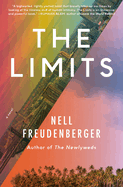Wi2024: Building a Bright Future; Creating Goodwill

"It takes three years to get to Cincinnati, it turns out," Hill said, to widespread laughter. After having Cincinnati booked for 2021, and then 2022, "we're finally here."
This year's Institute is the largest ever, with 951 booksellers attending--and more than 400 of them attending for the first time. Hill added that this year will also include the oldest bookseller ever to attend a Winter Institute, at age 85, as well as the youngest bookstore owner ever to attend, at age 14.
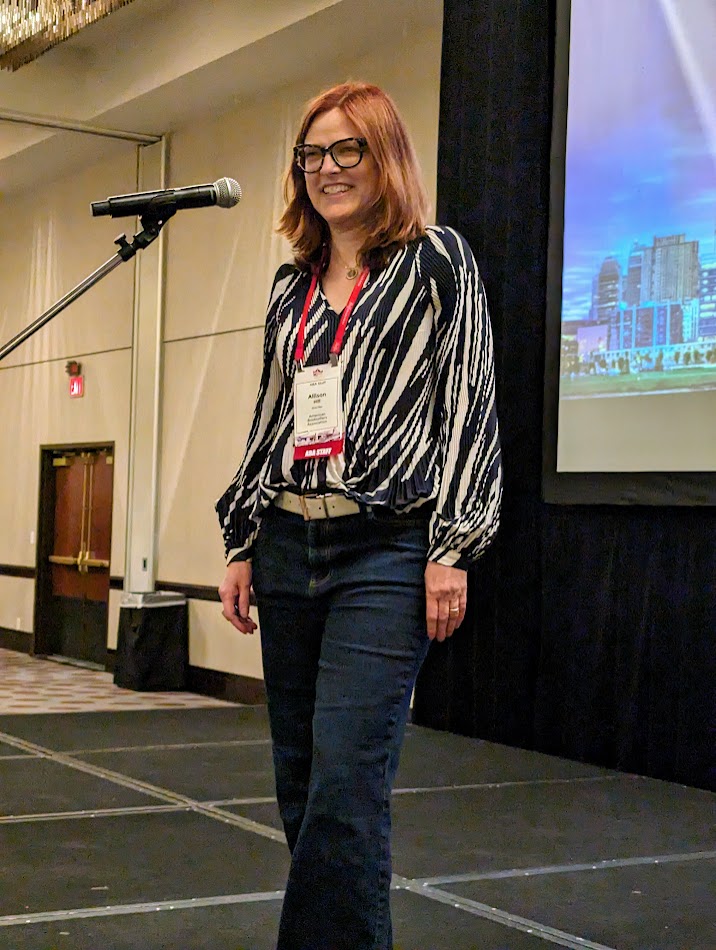 |
|
| Allison Hill | |
Last year at Winter Institute in Seattle, Wash., Hill continued, it felt that booksellers were coming out of the pandemic like "groundhogs," trying tell whether "spring would ever come." This year, "there are signs of spring everywhere," including the re-energizing of the buy local movement; consumers' desire for authentic experiences and knowing "who they're buying from"; and the FTC lawsuit against Amazon.
"Independent bookstores are ready for this moment," Hill said, "and the value proposition that you offer, combined with the hard-earned insights and resilience you built during the pandemic, indicate a bright forecast for the future."
And in an election year, she added, it seems like a "good time to remember that the future doesn't just happen. We build it. I hope this week is all about building a bright future for independent bookstores, together."
---
 |
|
| James Rhee | |
James Rhee, investor, teacher, CEO, and author of the upcoming book Red Helicopter: A Parable for Our Times (HarperCollins, April 9), took the stage to discuss jeong, the intangible value of businesses, the importance of kindness, and how he helped save clothing store chain Ashley Stewart from going out of business by relying on those principles.
Jeong, Rhee explained, is a Korean word that has no exact equivalent in English but is closest to goodwill. It describes a "connected-ness" between people, an interdependence and mutual coexistence, that "becomes tangible" and "travels for generations."
"You are in the business of goodwill and jeong," Rhee told booksellers. "It's a beautiful service that you all do for our society. The question is how to make it more tangible."
At a time in his life when he was struggling to reconcile his desire to do good with his success in the financial industry, Rhee joined Ashley Stewart, a national retailer specializing in clothes for plus-sized Black women that was in dire straits.
Despite the company's struggles, Rhee knew there had to be something more that had kept the stores in business for so long, that it couldn't be as simple as just being about the clothes. "There has to be a reason why you're here after 22 years."
Rhee described his approach to learning the business as one of "childlike simplicity." He essentially worked in the stores, hanging jewelry and learning about clothes, and after six months, he realized that "this business has nothing to do about clothes."
The product, the "capital-p Product," as Rhee put it, was intangible--it was relationships, it was comfort, it was confidence, it was "being yourself."
Rhee's subsequent attempts to get funding failed, but rather than give up, Rhee and his colleagues decided to "exercise agency." They couldn't listen to what everyone was saying, because they were all "saying the same thing," so they set out to "build our own future." And in doing so, they set out to be both kind and mathematically right.
Said Rhee: "Kindness, in my reading of it, is giving someone else agency."
By "balancing kindness and math," Rhee and his team were able to "fly free." Math allowed the team to quantify the parts of the business that could be quantified, and the rest came down to jeong, to goodwill.
"If you are kind and mathematically true, I think you create goodwill," Rhee said. "I think the economists would say you create positive externalities." And in a country that doesn't penalize negative externalities, "I want to be involved with things that create and reward positive externalities."
Looking ahead, Rhee said that as an investor, he expects to see the "convergence of interesting ideas and alliances" that have never been seen before, and while there will be hardship, "the future of independent booksellers looks rosy to me: truth, community, small business." --Alex Mutter










 Jeff Deutsch, director of Chicago's Seminary Co-op Bookstores (and author of In Praise of Good Bookstores), caught up with Ben Rybeck, general manager of House of Books in Kent, Conn.
Jeff Deutsch, director of Chicago's Seminary Co-op Bookstores (and author of In Praise of Good Bookstores), caught up with Ben Rybeck, general manager of House of Books in Kent, Conn. DJ Johnson, owner of Baldwin & Co. in New Orleans, La., with Hannah Oliver Depp, co-owner of Loyalty Bookstores in in Washington, D.C., and Silver Spring, Md.
DJ Johnson, owner of Baldwin & Co. in New Orleans, La., with Hannah Oliver Depp, co-owner of Loyalty Bookstores in in Washington, D.C., and Silver Spring, Md. A University Press of Kentucky party featured many of the press's bourbon titles as well as bourbon tastings conducted by Heather Wibbels, author of the press's Bourbon Is My Comfort Food. Wibbels is also a mixologist, chair of the Bourbon Women board of directors, a photographer, and may be best known to some whiskey lovers as the
A University Press of Kentucky party featured many of the press's bourbon titles as well as bourbon tastings conducted by Heather Wibbels, author of the press's Bourbon Is My Comfort Food. Wibbels is also a mixologist, chair of the Bourbon Women board of directors, a photographer, and may be best known to some whiskey lovers as the 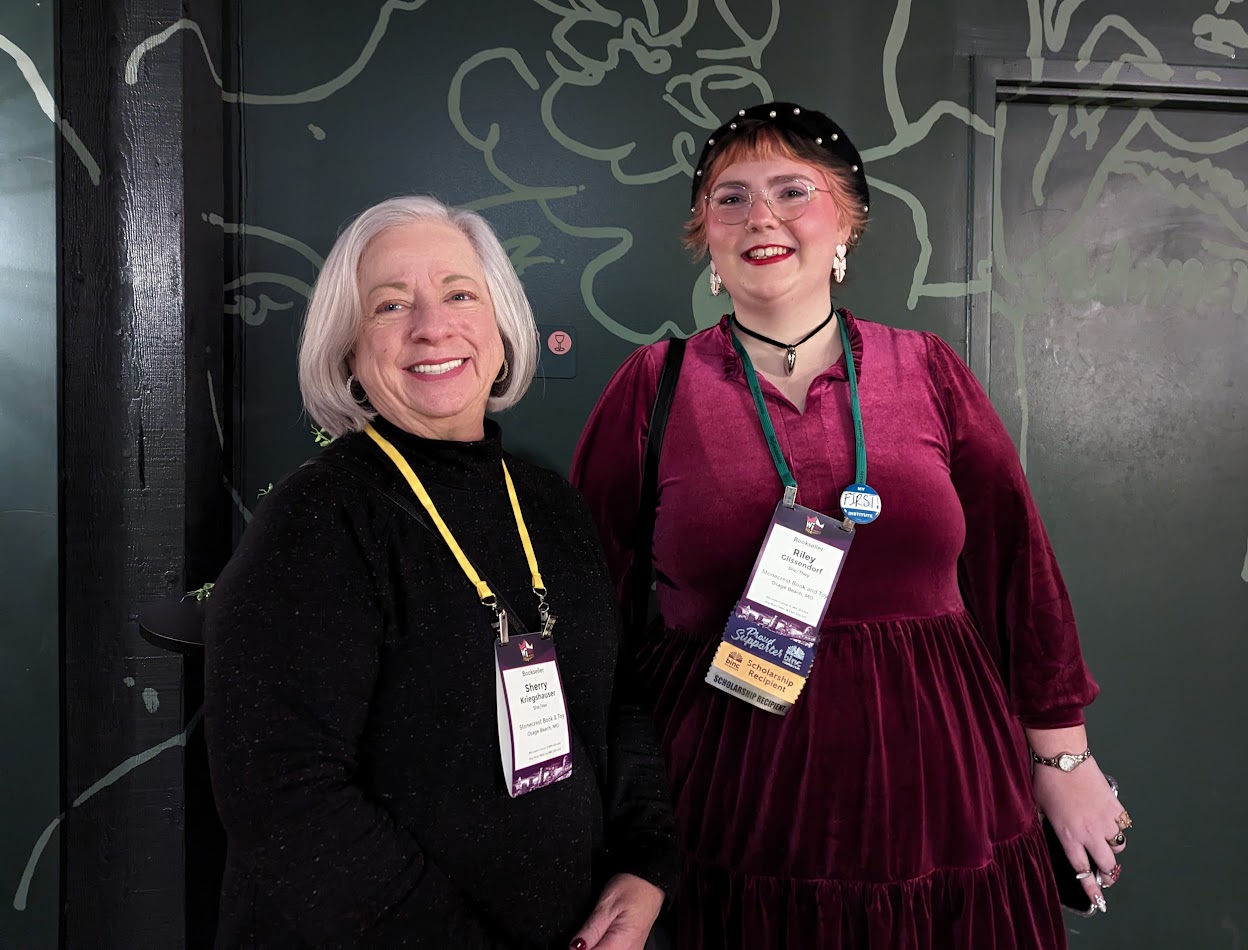 Sherry Krieghauser and Riley Glissendorf, both from Stonecrest Book and Toy in Osage Beach, Mo., at a party hosted by the Book Industry Charitable Foundation and AdventureKeen. Glissendorf was the winner of the 2023
Sherry Krieghauser and Riley Glissendorf, both from Stonecrest Book and Toy in Osage Beach, Mo., at a party hosted by the Book Industry Charitable Foundation and AdventureKeen. Glissendorf was the winner of the 2023 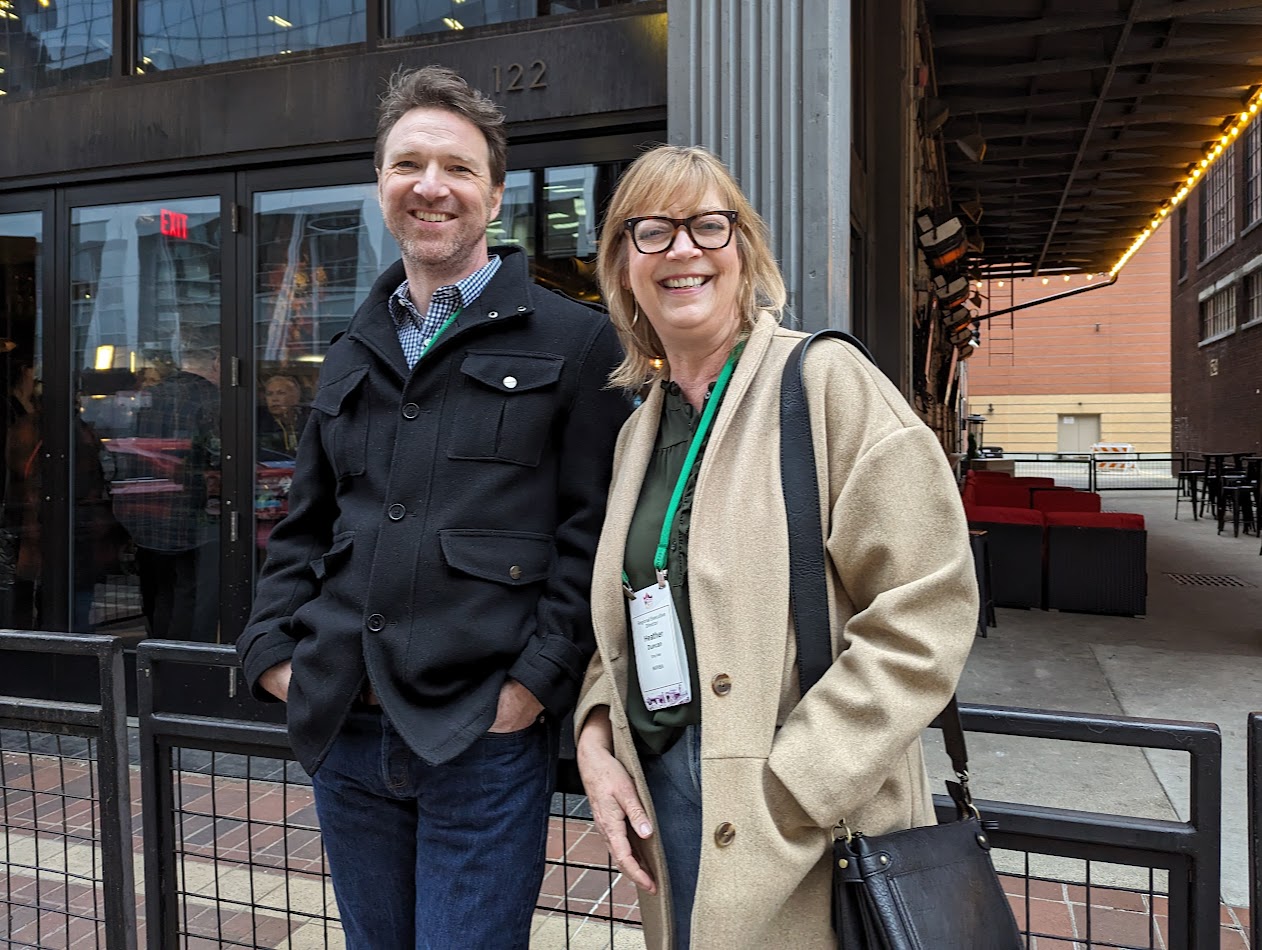 Brian Jeunemann, executive director of the Pacific Northwest Booksellers Association, with Heather Duncan, executive director of the Mountains and Plains Independent Booksellers Association.
Brian Jeunemann, executive director of the Pacific Northwest Booksellers Association, with Heather Duncan, executive director of the Mountains and Plains Independent Booksellers Association.
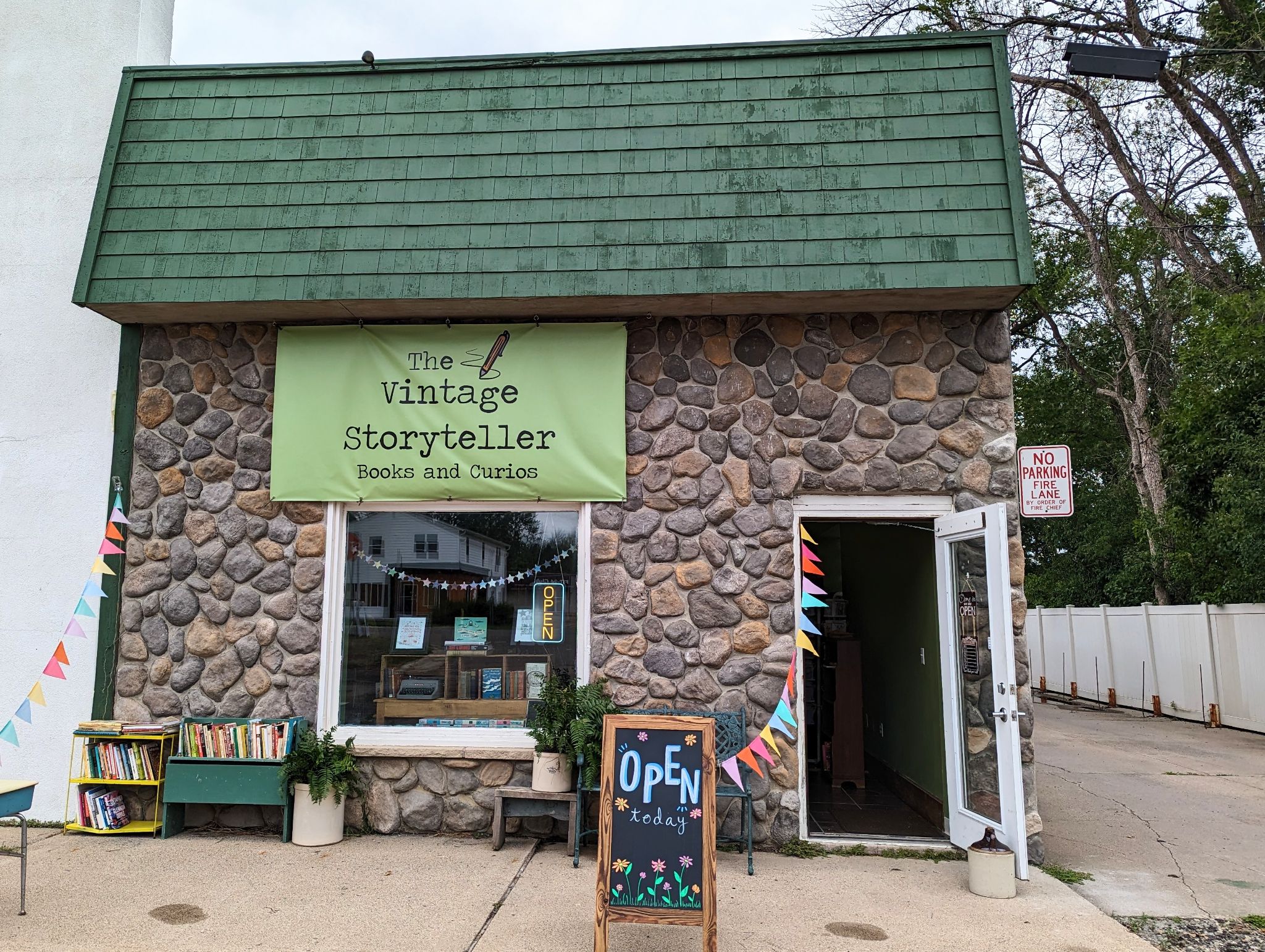
 Barnes & Noble plans to open five new bookstores in the Chicago area, beginning this spring and continuing through the fall.
Barnes & Noble plans to open five new bookstores in the Chicago area, beginning this spring and continuing through the fall. 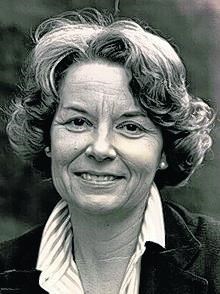
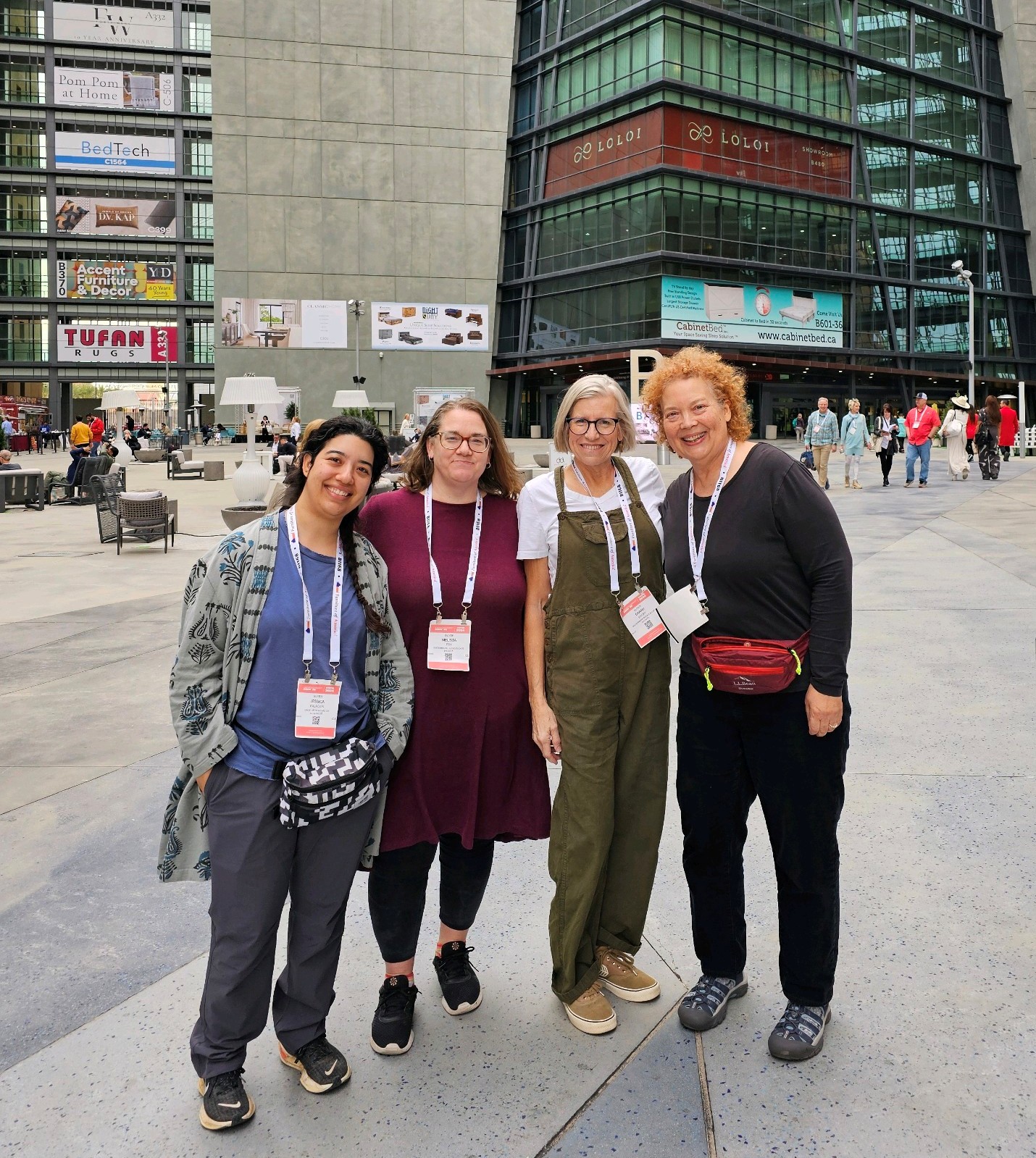 Owner Sarah Bagby and bookseller Melissa Fox from
Owner Sarah Bagby and bookseller Melissa Fox from 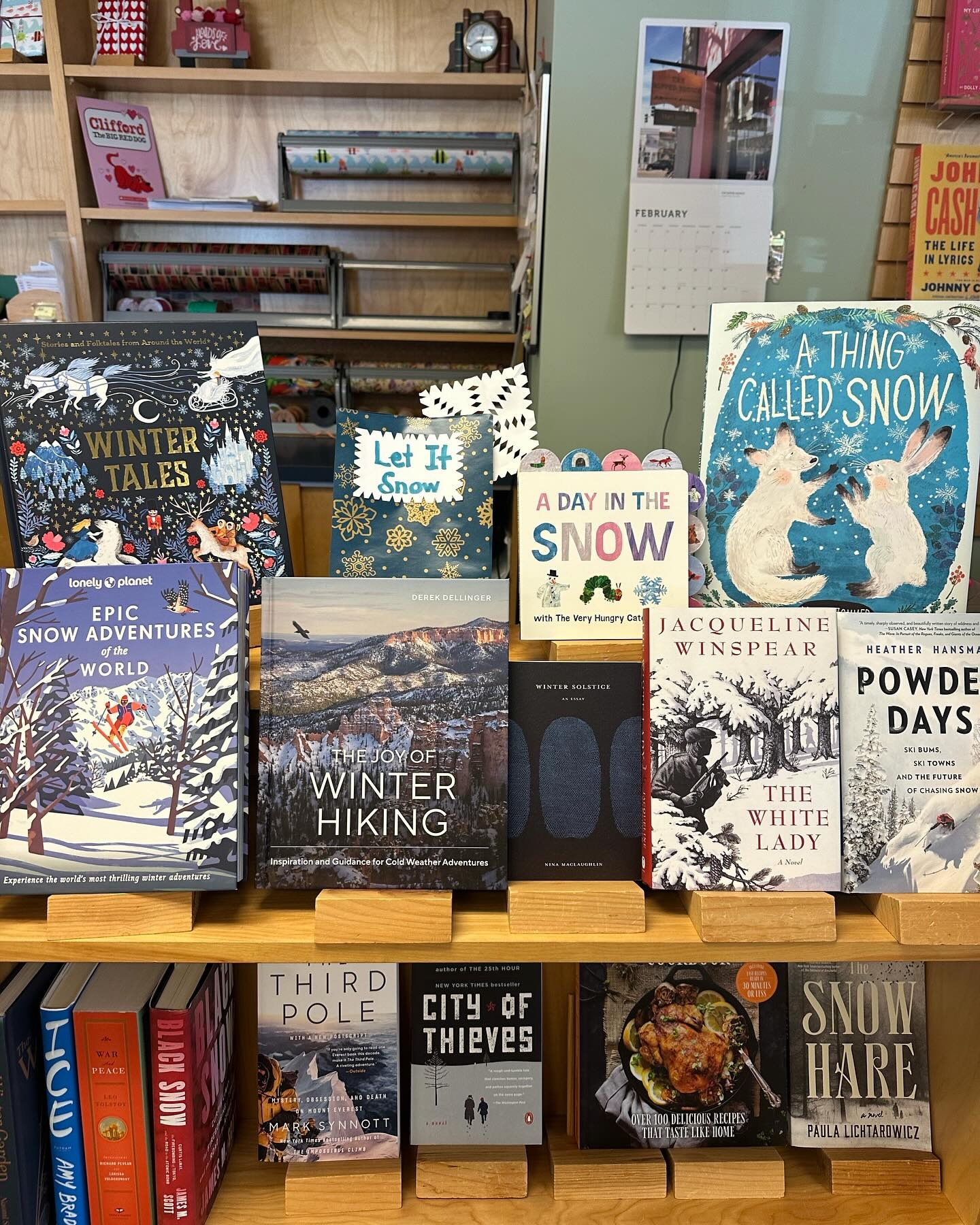 Posted on Facebook yesterday by
Posted on Facebook yesterday by  "
"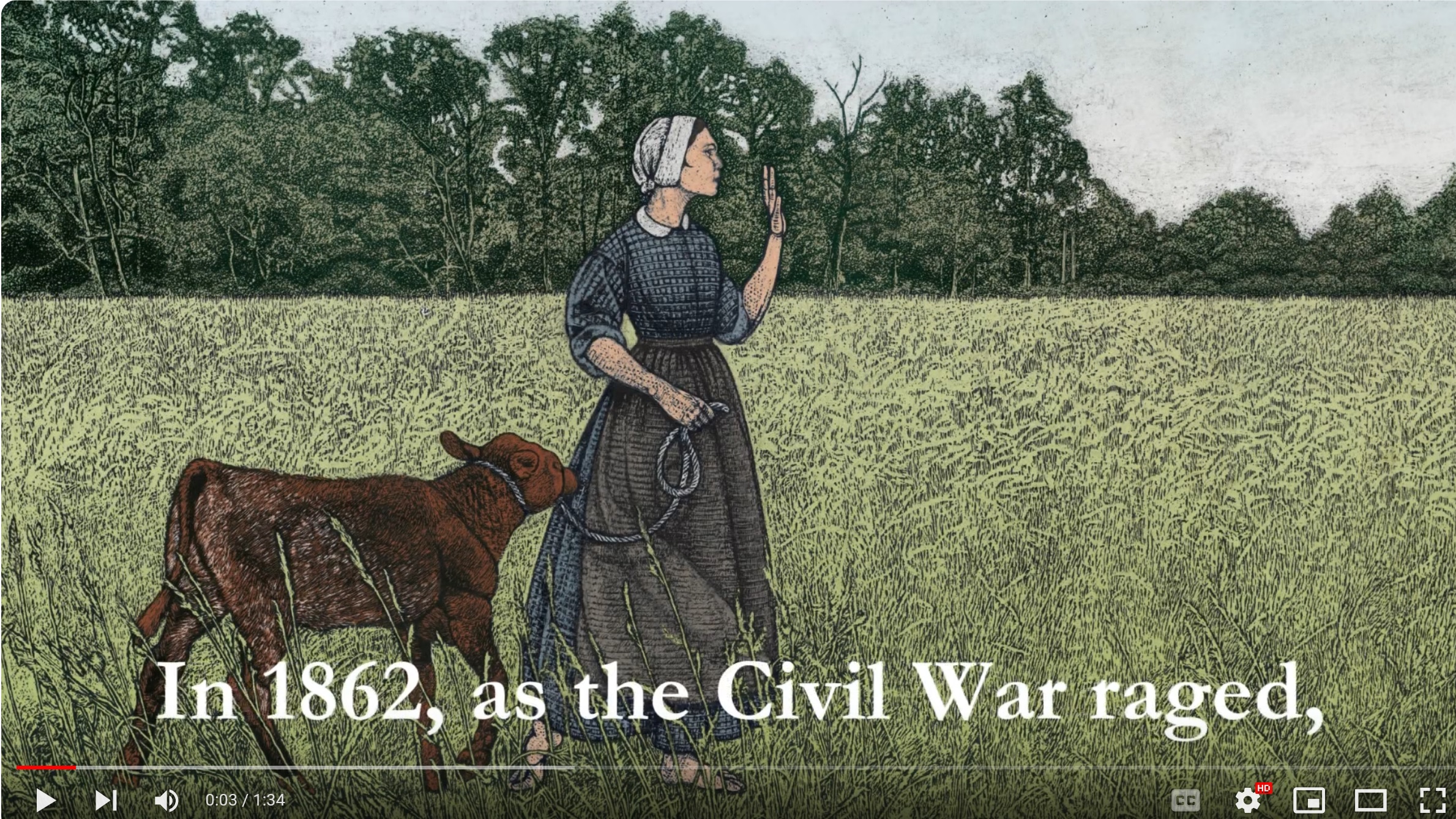 Guts for Glory: The Story of Civil War Soldier Rosetta Wakeman
Guts for Glory: The Story of Civil War Soldier Rosetta Wakeman Nell Freudenberger's fourth novel, The Limits, is a clear-eyed exploration of loss, love, and the difficulty (and hope) inherent in human connection, set during the first year of the Covid-19 pandemic. Freudenberg (
Nell Freudenberger's fourth novel, The Limits, is a clear-eyed exploration of loss, love, and the difficulty (and hope) inherent in human connection, set during the first year of the Covid-19 pandemic. Freudenberg (